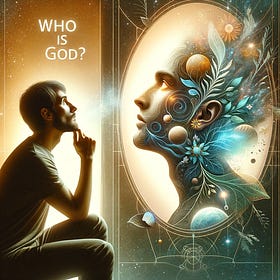Study Links Childhood Trauma to Chronic Pain
A study involving over 826,000 individuals found a strong connection between childhood physical abuse and chronic pain conditions in adulthood.
In a quiet corner of my sister-in-law’s home—here on vacation with family—I stumbled upon an article that felt like a mirror to my life.
It spoke of a study linking childhood trauma to chronic pain in adulthood.
At 45, I'm a living testament to this reality.
My body, a canvas of pain, etches the story of a turbulent past - migraines, joint aches, an ever-aching back.
But this isn't just my story; it's a generational echo, resonating through my parents and grandparents.
Childhood, for me, wasn't the idyllic tale often romanticized. It was laced with moments that left deep imprints. The kind of stuff you bury deep but never really disappears. It surfaces in unexpected ways, like the sharp jabs of pain that now frequent my body.

As a kid, home was a puzzle, pieces never quite fitting—contrasting parents from an orthodox Christian mother to an atheistic alcoholic father. Both practicing escapism, in a constant contrarianist's battle.
But so were their parents, my grandparents.
My parents, grappling with their own inherited traumas, unknowingly passed the baton of pain.
My grandfather, a stern man, carried the weight of his unspoken childhood abuse experiences. His silence was a loud presence, always leaving during holiday gatherings, a looming shadow that seemed to whisper of unspeakable things.
As I sit on my sister-in-law's couch, here writing about what I just read, I reflect on the study's findings.
It's shocking really.
Over 826,000 people, a staggering number, shared this needle of pain pricked into the fabric of their lives.
A chilling reality that childhood experiences, those unguarded moments of vulnerability, could morph into a lifelong physical struggle. It's a thought that lingers, unsettling yet validating.
And I'm not alone in this, unfortunately.
Growing up, the notion of ‘just trust God' was a mantra. "God has a plan," my mom would say as my dad was sentenced for 8 years, paying the price for a drunken decision.
in that, I learned to mask the internal chaos, to bury it under layers of scripture.
But the body, it turns out, doesn't forget. It remembers in the form of chronic pain - a constant reminder of the battles fought and the ones still raging within.
This journey of understanding is not just personal; it's a collective narrative.
Across generations, the pattern repeats - the silent endurance of pain, both emotional and physical.
My mother, a woman of mostly godly words, carried her burdens by proxy, by turning them over to God, or perhaps deep within her consciousness.
Her migraines, like mine, were perhaps silent screams from a past that refused to be buried.
What strikes me most about the article is the notion of breaking this cycle.
The author talks about the need for more research to understand the link. It's a call to action, a beckoning to confront our ghosts, to prevent the same shadows from darkening future generations.
As I reflect on my childhood, I'm transported back to my own moments of realization.
I was 12 when my migraines began—the same age when my father went to prison.
Then, during a particularly painful episode in adulthood, a migraine that felt like my skull being cracked open, I sit here and wonder. The pain wasn't just physical; it was an amalgamation of years of unaddressed emotional turmoil.
The frequent migraines that still linger, some 10 or more per month—perhaps an internal alarm to release the pain in my refusal to face the trauma as a child.
Now, in the quiet of the night here, I find solace in this shared experience.
The article isn't just a study; it might be a validation of the invisible wounds many carry. It speaks to those like me, navigating the complexities of adulthood while untangling the knots of a troubled childhood.
But there's a silver lining, a beacon of hope.
Awareness is the first step toward healing.
By recognizing the link between our past traumas and present pains, we open the door to understanding, to coping mechanisms that go beyond the physical.
There's a growing movement, a collective awakening to the importance of mental well-being.
Therapy, once a taboo, is now a path many bravely tread. It's a journey of unraveling, of confronting the past with the goal of a pain-free future.
My story, like those in the study, isn't unique. But it's a testament to the resilience of the human spirit.
We are more than the sum of our past pains. We are the hopeful architects of our healing journey.
As I finish the article, I feel a sense of kinship with those unnamed faces in the study. Our stories are different, yet our struggles intertwine, forming a blend of shared experiences.
It's a reminder that in our vulnerabilities, we find our strongest connections.
The night is ending, and as I am about to slip under the cool blankets of Christmas air conditioning in the Caribbean, I feel a lightness.
Yes, the pain is still there, but it's now a part of a larger narrative. A narrative that speaks of struggle, yes, but also of hope, resilience, and the possibility of a future unburdened by the pains of the past.
External sources: UPI
Who the Hell is God Anyway?
Who the hell is God, really? You've heard the stories, the sermons, the sacred texts – a bearded man in the sky, a cosmic force, an unknowable entity. But have you ever stopped to think that maybe, just maybe, we've got it all wrong? Let's start with the 'what.'


